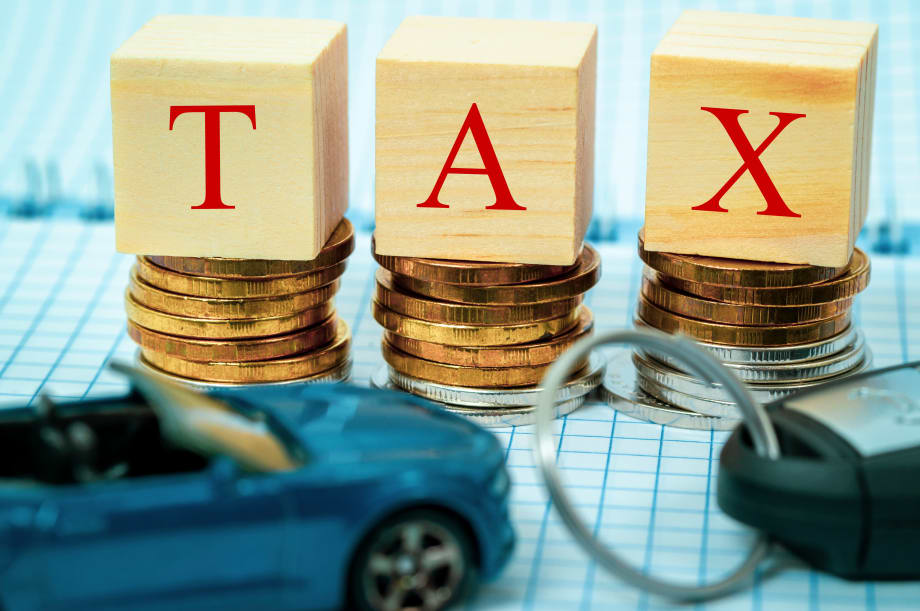Company Car Tax on Electric Cars Explained
Electric vehicles (EVs) are getting more and more popular. Many companies are making the switch from petrol and diesel to electric. On a quest to future proof your business? Electric company cars are an interesting solution.
In the current context, EVs have certain advantages over petrol or diesel cars that attract many, all in good reason. We’re talking about a cleaner environment, no congestion charges, lower running costs, and lastly but not least, government funding. One of these great advantages, and the one we will discuss further on, is the value of company car tax on electric cars.

How much is company car tax on electric cars?
If you’re looking into electric cars for your company, you might be wondering how much company car tax on electric cars is, how it is calculated, and what exactly you pay. We’ll answer all these questions below.
First things first, the government is eager to get companies to switch from petrol, diesel and even hybrid cars to electric. The UK government are going for a carrot and stick approach. You get benefits to buy an electric car and charges if you stick to conventional fuel.
For example, you can enjoy government grants for new plug-in vehicles. These grants currently amount to £1,500 for cars, £5,000 for vans and £16,000 for small trucks. Also, some of London’s boroughs provide free or reduced-charge parking for electric vehicles.
You don’t have to pay VED (Vehicle Excise Duty) on electric cars. You probably know VED as vehicle tax or road tax. But, you still have to pay BiK – or Benefit-in-Kind.
What is BiK?
It’s all quite simple, as a matter of fact. A company car is considered a non-cash benefit or perk. Therefore, you have to pay a tax to use a company car for business purposes or even privately.
Benefit-in-Kind is paid by both the employer and the employee and the tax is calculated based on data such as the value of the car, the CO2 emissions, and the income-tax bracket of the employee.
What’s the BiK for company electric cars?
For the 2020-2021 financial year, the government introduced a BiK tax rate of 0% on fully electric company cars. This rate increased to 1% for the 2021-2022 financial year and will rise to 2% for 2022-2023, staying at this threshold until the financial year ending in 2025. In comparison, the average petrol or diesel running vehicle has a BiK rate of 20% up to 37% per year.
This is part of the government efforts to end the sale of new diesel cars (vans included) by 2030.
How is company car tax calculated on electric cars?

Both the company and the employee are liable to pay the electric vehicle company car tax. However, this tax is calculated slightly different for each of the two parties. The company will pay tax based on the car’s value (referred to as P11D value) and its CO2 emissions. For the employee the tax is calculated based on the car’s value multiplied by the BiK rate and multiplying the result by the employee’s income tax percentage.
Find out how much company car tax you’ll pay
For a fully electric company car valued at let’s say £30,000, the company will pay a £300 tax for the 2021-2022 financial year, respectively a £600 tax for the subsequent tax years up until 2025, with the rise to 2% we mentioned above.
The electric vehicle company car tax the employee will have to pay depends on their income tax. A 20% taxpayer will pay around £60 per year for a fully electric car, while a 40% taxpayer will pay around £120 per year.
In comparison, for a value-equivalent diesel car with CO2 emissions of 128g/km, which places it in the 33% BiK band, a taxpayer would pay from £1,700 up to £3,400, depending on their income tax.
You can use the HMRC company car calculator to find out exactly what tax on electric company cars you’d pay for a certain model.
How about electric company vans?
Company vans have a whole different taxation category all for their own, called “van benefit charge”. If a conventionally powered van incurs a tax of £3,500 per year, starting with the 2021-2022 financial year, full electric vans are tax exempt.
Benefits of going full electric
We’ve established that the company car tax on electric cars is much lower than on conventionally fuelled vehicles. For many companies considering to switch to electric company cars, this is a great advantage. Not to mention that going green is going to help our planet.
You also have to consider the no congestion charge for EVs, as well as the decrease in running costs.
Are you ready to make the switch?
If you’ve considered changing your conventionally fuelled cars to electric company cars, but you’re still not there, you can opt for a few options that might help you make up your mind.
Choose to rent on your own terms using a flexible vehicle hire option and go ahead and test the benefits of electric yourself. It’s up to you if you hire for a day, a month or a year without having to worry about service, maintenance, repair, replacement, recovery, road fund licence and tyres as the flexible hire solution comes inclusive of all that.
On top of that, to make things easier, you can choose from a range of electric vehicle charging products. Get an EV charging card to charge your vehicles easily. Or, for added convenience, choose an EV charging point at your office, depot or even at the homes of your employees.
So, how does an EV charging card work? Basically, like any other classic fuel card. It gives you access to many electric vehicle charging points making it easier to access a charging station at any given moment. And if you opt for a hybrid, you can also use it as a fuel card, as some options can include certain petrol stations across the UK.
Apply for an EV charging card here!
An EV charging point would definitely come in handy to have if you’re considering changing your fleet to electric vehicles.
Things to take home
The UK fleet market is changing as more businesses are making the switch to electric vehicles. Industry experts expect that electric vehicles will have an important part to play as the transport sector changes. The vehicles sold for fleets of vehicles will probably represent half of all the EV sales in the UK by 2030.
The tax differences for fully electric vehicles and traditionally fuelled vehicles are huge. If you have a fleet of petrol cars with CO2 emissions between 100-104g/km, you will end up paying a 25% tax for each car. Whereas tax on electric company cars will be merely 2% starting with the 2022/2023 financial year. The math is simple and in favour of electric company cars.
Give electric a try! The government has committed to support you by keeping the tax on electric company cars low. Go ahead and hire, you’ll sure find an EV rental offer that suits your needs.



